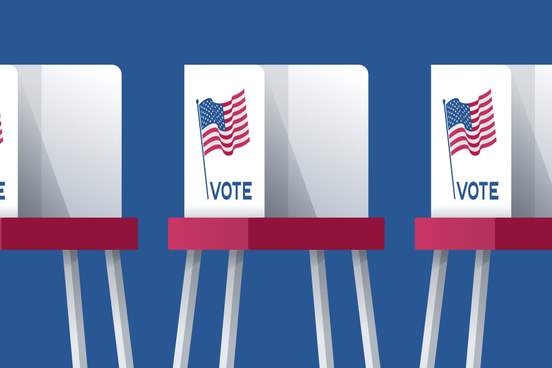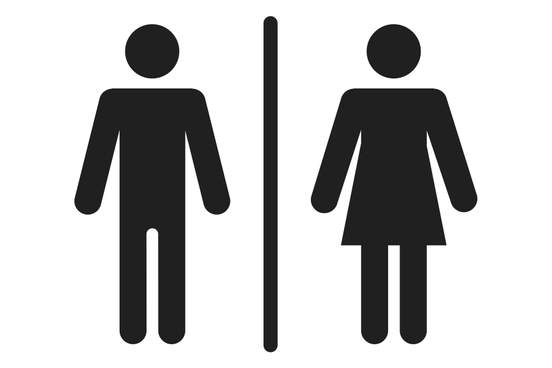
Democracy
Democracy is a word that has never been out of our top lookup list. It’s proof that the common assumption about the reasons people look up a word in the dictionary—namely, that a word is very difficult to spell or that it is very rarely encountered—is often false. People also look up familiar words, in order to find more nuance, information, and depth. Most people know that a democracy is a form of government in which people choose leaders by voting, but there are other questions that one might ask, such as what is the difference between a democracy and a republic, or that democracy comes from the Greek words dēmo (“people”) and kratia (“strength or power”).

Metaphor
Speaking of Greek and Latin roots, nearly all of our terms for figures of speech came to English from Greek through Latin. The words we use to describe the way we use words have classical origins, from sentence and grammar to rhetoric and simile. Since the dictionary plays such an important role in schools and education, it’s not surprising that, whether through homework or curiosity (or both), metaphor is a commonly looked-up word.

Woke
Dictionaries have always expressed the tension between the ancient and the current in our vocabulary. There are old words, new meanings of existing words, and new additions that are found side by side. New words that are frequently heard and debated get lots of attention, partly for clarification of their meaning, and possibly because some people check to see whether they are entered at all. We trace the use of woke to mean “attentive to important societal facts about social justice” back more than fifty years, but its recent use as a disapproving way of saying “extremely liberal” was added just recently.

Environment
A word that has steadily risen in our data shows that environment is on the minds of many people. It’s another familiar word that doesn’t pose the problems of spelling or pronunciation that a rarely encountered word might. This kind of lookup shows that people are interested in the phenomenon described by the word. In this case, environment is used in two very different ways: it has a very broad figurative use meaning “the conditions and influences that affect something,” and this use may make you want to verify its more narrow—and more scientific—meaning, “the natural world.” Because the environment is also the subject of intense and increasing interest in public policy as well as science, it’s no surprise that people check its meaning in the dictionary.

Justice
Justice has risen at a slow and steady pace in our data, and became our Word of the Year in 2018. It’s another word that seems too familiar to send people to the dictionary, but the interest in this word is proof of how important the idea of justice is in our culture. It’s also a reminder that abstract words describe complex ideas that may pose questions that go beyond spelling and pronunciation. Justice is also a term that is used in both broad and narrow ways, and specific legal uses are good reasons to consult a dictionary. An increasing awareness of social justice matters in recent years has only added to the interest in the meaning of this word.

Empathy
Like integrity and authenticity, empathy is an abstract word with classical roots. It’s also, like them, a quality that is deemed positive and desirable. But empathy entered English in the early 20th century—more than five hundred years after both integrity and authenticity, proving that Latin, and, in this case, Greek roots continue to be very productive sources of words. This is partly because combining words or word parts from these languages gives us new words built with old meanings, like pandemic (meaning “all of the people”). Empathy combines em- (“with”) with pathos (“feelings, emotion”). Empathy is also frequently looked up to contrast its meaning with that of sympathy.

Aesthetic
Aesthetic is a word that has risen in recent years to become one of our top lookups. There’s a lot to unpack with this word, starting with the use of ae in its spelling; this letter combination turns up in words that came from Latin, but can be pronounced in different ways—think of Caesar and vitae (reggae doesn’t come from Latin, but is another prominent word spelled this way). The noun aesthetic is sometimes used in the plural when identifying a field of study or the visual qualities of something. Add to all of this the occasional use of variant spellings esthetic and aesthetical, and we find that there are many reasons to check on this word when you’re writing.

Serendipity
This is one of those “word lovers’ words” that spark spontaneous joy just by existing as far as this population is concerned. Serendipity occupies a special place among such words. Like others in this category, these are words that are often fun to say, usually have a single meaning, and have clear or helpful etymologies. Serendipity was coined by writer Horace Walpole and inspired by the English translation of the Persian fairy tale The Three Princes of Serendip. Other words in this group include schadenfreude and doppelgänger.

Cisgender
For many people, cisgender is truly a new word, one that may need defining. Terms of identity, and especially for racial, gender, and political identity, are more important than ever, and are looked up for reasons that can include accuracy, respect, and curiosity. Cisgender means:
: of, relating to, or being a person whose gender identity corresponds with the sex the person was identified as having at birth
Cisgender is a relatively young word in English, dating back only to the 1990s, and formed from Latin parts: cis- meaning “on this side” and gender, tracing back to genus meaning “kind” or “race” or “birth.” Other scientific uses of the cis- prefix include cisatlantic and cislunar.

Gaslighting
The Internet age has brought us a crisis of truth and facts, of spamming and phishing. When we can’t believe what we see with our own eyes, it also becomes a crisis of knowledge and knowing. It’s no surprise, then, that a word that denotes deliberate deception would become a go-to description of this behavior: gaslighting has quickly become a new part of our vocabulary. Meaning “the act or practice of grossly misleading someone especially for one’s own advantage,” it’s a word for our times, and we know that because it’s among our most looked-up words.




